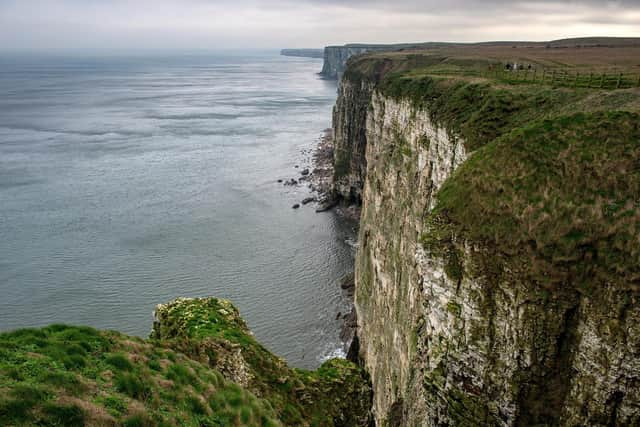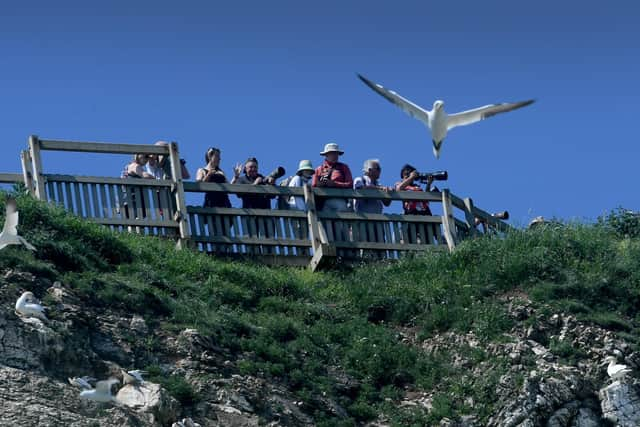Yorkshire killer whale: First sighting in region since 2007 gives boost to RSPB Bempton Cliffs after fish stocks recover
The male or ‘bull’ orca was spotted only two miles from viewpoints at the charity’s Bempton Cliffs nature reserve near Bridlington on Monday afternoon, and the record verified by three expert birdwatchers who were among the group to see it travelling south with a pod of minke whales.
It is thought to have most likely ranged from a small population that lives off the Scottish islands of Shetland and Orkney, which have become specialised seal hunters.
Advertisement
Hide AdAdvertisement
Hide AdAs killer whales are a global species, they are not impacted by climate change in the way that other whales can be, and the animal’s appearance off Yorkshire could be a sign of a healthier food chain due to recovering fish stocks in the North Sea.


RSPB Bempton Cliffs site manager Dave O’Hara said: “We were very lucky that there were people in the right place at the right time. Bull orcas have a high dorsal fin that is very distinctive. It was seen about five times before it swam south, and there was then a great rush to Flamborough Bird Observatory, but it wasn’t seen again.
"There may have been females too – we are not certain that there was just one because they are social animals, so there could have been others. Females are less visible.
"It most likely came from Shetland or Orkney, as they are occasionally seen on the east coast and there’s been an increase in sightings. They’re very mobile and have the ability to range long distances.”
Advertisement
Hide AdAdvertisement
Hide AdTwo males nicknamed John Coe and Aquarius were seen several times in the Irish Sea last summer, and identified as the last survivors of a Scottish west coast community that lived around the Hebrides, but struggled to breed. The RSPB is also considering the possibility that the Bempton orca could be one of these bulls.


"It’s very exciting. There has been a lot of worry about orcas becoming less fertile due to ocean pollution, but in Shetland they have been in recovery and there are a number of pods now – they are specialist seal hunters.
"The last record in Yorkshire was in 2007, off Flamborough Head, and we think there was only one previous one before that. We’re expecting many people to visit this week, as killer whales do frequent shallow water, unlike larger species. If we’re lucky, there will be further sightings.”
The visit comes at the end of a busy summer for the nature reserve, famous for its puffin colonies and the appearance of Europe’s only albatross in 2021.
Advertisement
Hide AdAdvertisement
Hide Ad"We’ve had our best ever year for minke whales, and we’ve had the brown booby (a rare tropical seabird first seen in the UK in 2019) this month – it’s now in the Tees Estuary.
"Filey Bay has huge fish shoals at the moment, so there is a real spectacle of feeding seabirds. There are a lot of worries about the warming of the North Sea and the effect on the food chain, but there are exciting things happening too, thanks to work to manage the sea to best preserve fish stocks. There is a partial closure of the sand eel fishery in the North Sea this year, which has been a very positive move that benefits birds and mammals.”
